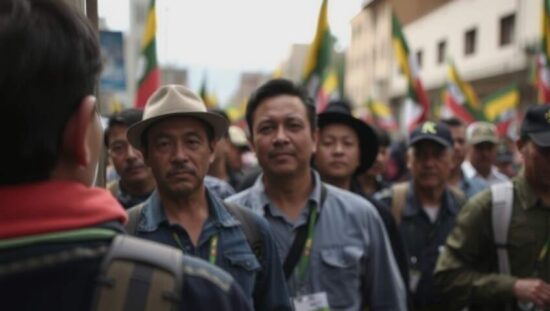Germany’s Foreign Minister, Johann Wadephul, underscored the significance of his imminent meeting with Bolivia’s newly installed government, framing it as a crucial turning point for the Andean nation and a potential boon for German interests. Speaking before departing Colombia to Bolivia, Wadephul emphasized the unusual speed of the encounter, meeting President Rodrigo Paz Pereira on his administration’s third day and effectively its first full day of work.
The German minister readily acknowledged the deeply rooted economic anxieties within Bolivia, with citizens yearning for relief from a protracted crisis and a path towards prosperity and stability. Paz’s stated commitment to re-engaging with the global community offers a glimmer of hope, a message Wadephul declared Germany is prepared to wholeheartedly endorse.
While highlighting the potential for expansive collaboration, Wadephul’s remarks were notably strategic, placing considerable weight on Bolivia’s substantial resource wealth, particularly its reserves of lithium – a critical component for Germany’s ambitious energy transition and the burgeoning electric vehicle sector. The availability of rare earth elements also presented further appealing opportunities, according to the minister.
However, the push for closer ties also carries political complexities. Bolivia’s membership in Mercosur presents a potential avenue for integration with the EU through the ongoing EU-Mercosur trade agreement. While touted as a mutually beneficial “booster” for bilateral economic relations, the agreement remains controversial globally; critics cite concerns over environmental safeguards and labor standards within Mercosur nations. Germany’s active support for Bolivia’s inclusion could be interpreted as a prioritization of resource access over addressing these broader concerns, potentially drawing scrutiny from within Germany’s own coalition and among human rights advocates. The speed and emphasis of Germany’s engagement also raise questions regarding the broader geopolitical maneuvering within South America, with Berlin seemingly eager to capitalize on the transition of power in La Paz.





